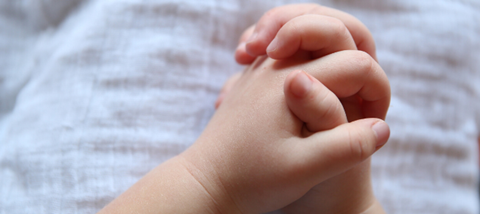
Seek good advice
Obviously, washing your hands properly and more regularly than usual is really important. Be sensible about symptoms. If you've got a particular vulnerability, exercise a high degree of caution, be willing to get advice extra either from your GP over the phone, or if you are under a specialist, speak to them about what you ought to do. Follow trusted sources, such as Public Health England (see below).
There’s not much other advice I can give, because the information is changing so quickly at the moment. As an example, this morning I wasn't supposed to be in protective gear to see a particular patient, but by the afternoon the recommendation had changed, and if I saw that same patient again, I would need to be in protective gear. It's appropriate that it changes at this stage in pandemic management, because you're managing different things at different times.
The problem with many news outlets is that they use lots of different sources of advice, so they can be out of date more easily. Pay attention to ongoing advice from the Government. Keep checking on Public Health England, which is a trusted research source with a consistent and reliable message.
There’s a concise set of things for professionals and the public on Public Health England, such as hand hygiene, what should be done with tissues etc. There’s even poster-friendly information and helpful infographics, which you may want to go through with children and young people.
It is also not panic-orientated. Public Health England will be regularly updating the site, so follow the advice they are giving as they update it.
Try not to panic
Obviously, there's a lot of panic at the moment and panic is a universally unhelpful phenomenon. Reasonable fear and respect breed sensible measures and caution, but panic makes things even more difficult.
What’s tricky at the moment is that there’s a really large amount of the unknown and the unseen. And that's always something that breeds fear. It goes to a really dark and negative place of paranoia really quickly.
Panic is not good for anyone. I would encourage children and young people to talk to people if they are feeling anxious or concerned about things. Those of us who are passionate about the next generation need to step into the gap and listen.
Accept the unknown
We must accept that there are some unknowns. Some things may change or be dynamic, but that's not necessarily a failure, that can be part of a good plan. We will see plans change in the next few weeks and months. Don't assume every time something changes, that means something was wrong before. Sometimes there is a time and a place to do certain things in a specific time frame.
One thing that seems to be causing a lot of panic at the moment is why many schools haven’t closed down yet. People are saying: “I don't understand why …” We won’t always understand why, but there are reasons various decisions have been made. One of the reasons for not closing schools is that there's good evidence that closing schools doesn't particularly change how it spreads, because children are not more vulnerable than anyone else, therefore it would probably spread the same. Additionally, the NHS is the world's fourth largest employer, and if you suddenly close all schools regardless of who is ill, you would probably take away about a third of your workforce, because NHS staff may need to be at home looking after their children. And suddenly, that means you can't deal with anything.
Pray
This is a good time to encourage our children and young people to pray. I believe that one of the reasons God blesses us, in addition to loving us, is the Abraham blessing – I will bless you, so that you can bless others.
I think this is a good time to start talking about the fact that God has sent people to work in hospitals, ambulances, public health, governments, positions of authority. And to encourage our children and young people to pray blessings on these people so that they can bless those around them.
Let’s encourage them to bring Coronavirus before God and pray that God would resource the people who are fighting this. Saying: God, we’re acknowledging that sickness is here, but we’re also acknowledging that you provide people to treat sickness and to deal with it.
This is a good opportunity for us to encourage children and young people that while we may be small, we can pray for people who make a big difference. Whether or not our leaders are believers, this is an opportunity to remind ourselves and those we minister alongside to pray for the leaders of the land – for God to give them wisdom in what they're doing.






































